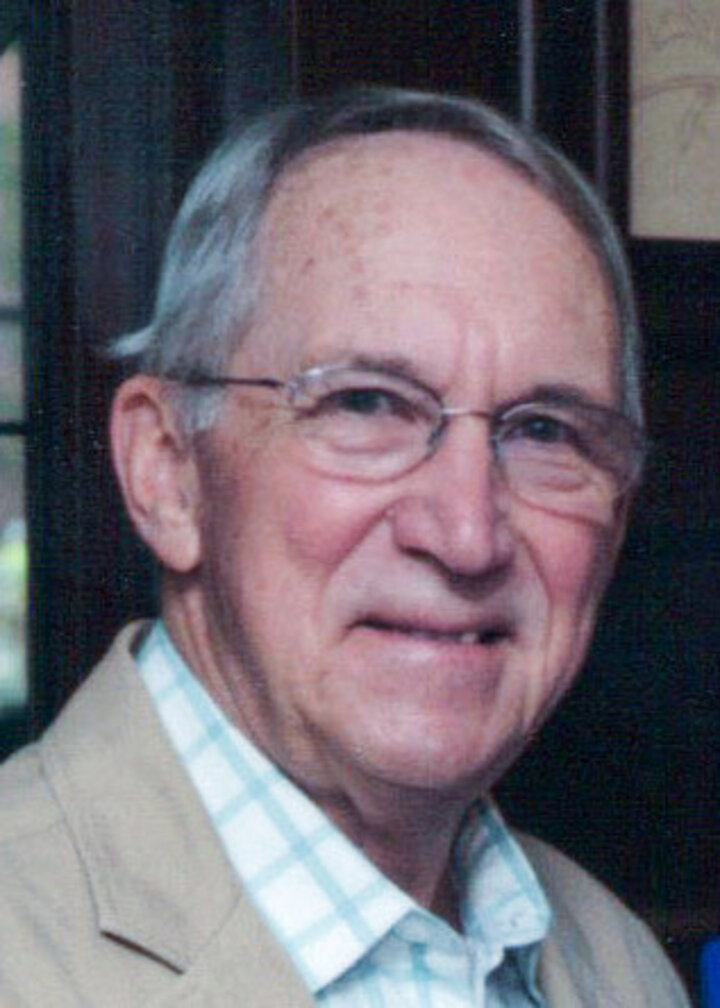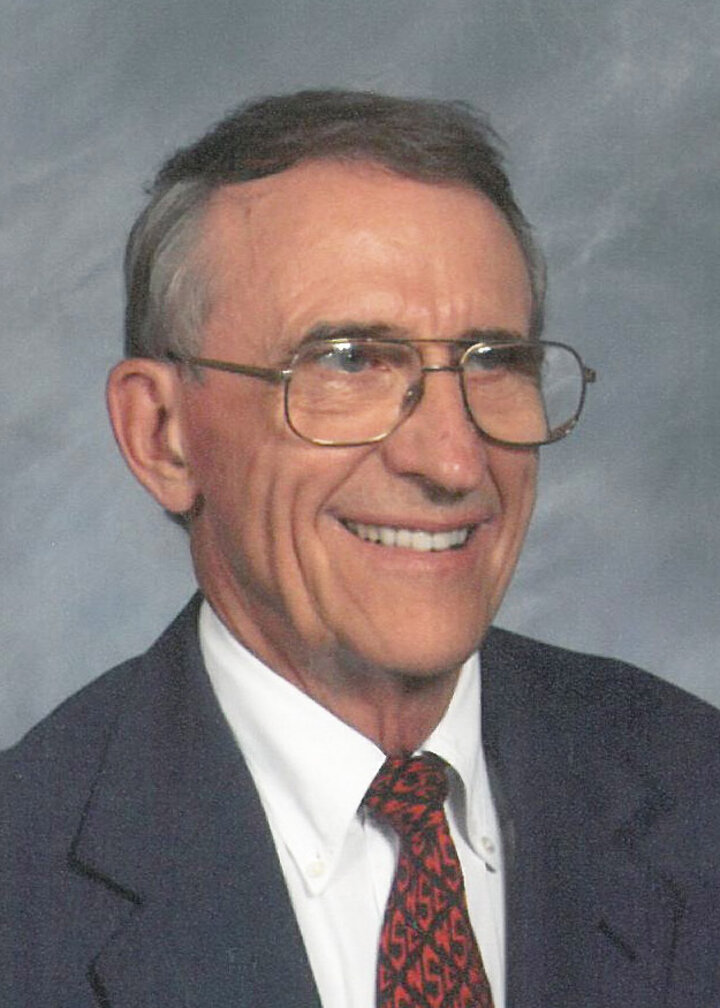Fredrick A. Bliss and Charles William Stuber, University of Nebraska–Lincoln alumni, received the Department of Agronomy and Horticulture 2022 Alumni Lifetime Achievement Award.
This award is the highest honor bestowed upon graduates of the Department of Agronomy and Horticulture who have made significant contributions to their community, state and nation through professional service, public service and/or civic engagement. The award was founded in 2016 to recognize alumni who have enhanced the reputation of the department and the university by distinguishing themselves in their careers. Honorees are selected by the Agronomy and Horticulture Alumni Advisory Council (AHAAC).

Fredrick A. Bliss
Fredrick A. Bliss was born in 1938 and raised on a farm near Red Cloud, Nebraska. In 1956, he entered the University of Nebraska–Lincoln as an undergraduate in engineering but soon changed his major to agronomy. He received his Bachelor of Science degree with distinction in 1960.
That same year he began graduate school at the University of Wisconsin–Madison Department of Horticulture studying under Warren H. Gabelman, one of the leading horticultural plant breeders of the time.
Bliss completed his Ph.D. in 1965 with a specialization in horticulture genetics. His research focused on cytoplasmic-genic male sterility in table beets, a trait still used today for development of commercial F1 hybrids.
He was awarded a National Institutes of Health Postdoctoral Fellowship to study at the University of Minnesota Twin Cities campus, where he spent a year working on computer simulation of selection in self-pollinated crops.
Bliss held a range of positions including teacher and researcher at two land grant universities, chair of a university department and research administrator at a major vegetable seed company throughout his nearly 40-year career.
In 1966, he joined the Department of Horticulture faculty at UW–Madison. In addition to teaching, public service and breeding self-pollinated vegetables, he worked as part of a UW U.S. Agency for International Development team building the then new University of Ife in Nigeria. He also worked in research and development projects globally, including consulting work in Nigeria, Somalia, Honduras and Brazil.
From 1988 to 1998, Bliss was a professor and the first Will W. Lester Endowed Chair in the Pomology Department at the University of California, Davis. He taught and mentored graduate students, and researched the genetic improvement of fruit crops, including kiwifruit, apricot and the rootstocks of plants from the genus Prunus (e.g., stone fruits such plums, cherries and almonds). He served as department chair for three years and chair of the Plant Biology Graduate Group for two years.
Bliss joined Seminis Vegetable Seeds, later Monsanto, as director of Worldwide Breeding in 1998 and was responsible for leading 115 vegetable breeders. He held senior director positions before retiring in 2010.
He released cultivars and genetics stocks, including tomato, cowpea, common bean, peach, and apricot, and his cowpea and tomato cultivars from the 1970’s are still being grown in Nigeria today.
Bliss was a member of the Scientific Advisory Panel for BeanCAP, RosBREED2 and the Integrated Breeding Platform Generation Challenge Program. BeanCAP and RosBREED2 are multi-university, cross-industry programs bringing the latest knowledge in genomics to commercial bean and fruit breeding. Generation Challenge Program is a website for information, analytical tools and related services to design and carry out integrated breeding projects.
He was a consultant with the Food and Agriculture Organization of the United Nations on the Global Initiative for Plant Breeding and a consultant to the Washington Tree Fruit Research Commission. He also served as consultant for many international studies and participated in numerous research and development projects globally including work in Nigeria, Somalia, Honduras and Brazil.
Through his work with FAO and the Bill & Melinda Gates Foundation, Bliss has been particularly passionate about developing talent in plant breeding. He worked on a study at UC Davis to survey information about the education and preparation of future plant breeders.
Bliss received many recognitions for his work including the National Association of Plant Breeders Lifetime Achievement Award, the ASSINSEL Award from the International Association of Plant Breeders for the Protection of Plant Varieties and International Horticulture Congress Honor Horticulturist.
He was a member and Fellow of the Crop Science Society of America, American Association Advancement of Science and American Society for Horticultural Science. He also served as president of ASHS in 1998.

Charles William Stuber
Charles William Stuber, born in 1931 and raised near Ravenna, Nebraska, is considered a pioneer of quantitative genetic mapping and marker-assisted selection in maize. His achievements include the development of genetic marker systems used in maize and adapted in numerous other crops, the first methods to identify quantitative trait loci and the creation of new breeding methods that integrated molecular markers into applied breeding. His work was instrumental in creating the foundation for modern plant breeding that relies heavily on combining genetic marker information with field evaluations of quantitative traits.
Stuber received his Bachelor of Science degree with distinction in technical science in agriculture from the University of Nebraska–Lincoln in 1952. After college, he served as a lieutenant in the United States Navy until 1956.
While in the Navy, Stuber married Marilyn Cook. After finishing his Navy service, he and Marilyn farmed for three years near Shelton, Nebraska. During this time, he also worked as vocational agricultural instructor at Broken Bow High School in Broken Bow, Nebraska.
In 1959, he returned to the University of Nebraska–Lincoln as a graduate student and worked in wheat breeding with John Schmidt in the Department of Agronomy. Their son, Charles, Jr., was born in 1960 and in 1961 Stuber received his master’s degree in plant breeding and genetics.
Stuber then enrolled at North Carolina State University and completed his Ph.D. in genetics and experimental statistics in 1965.
In 1962, and before he finished his doctoral degree, Stuber was hired as a research geneticist with the U.S. Department of Agriculture Agricultural Research Service in Raleigh, North Carolina, to conduct statistical genetics experiments in corn with the long-term goal of improving breeding methods for quantitative traits. He remained with the USDA-ARS for his entire career until his retirement in 1998.
He also held a joint appointment as a professor in NC State Department of Genetics.
Stuber returned to a faculty position at NC State on a part-time basis in 2006 to develop the Center for Plant Breeding and Applied Plant Genomics in the College of Agriculture and Life Sciences. He retired again in 2019.
Stuber was active in several professional societies and received numerous awards. He was named USDA-ARS Outstanding Scientist of the Year in 1989 and was inducted into the USDA-ARS Science Hall of Fame in 1999.
He was named a Fellow and served as president of both the American Society of Agronomy and Crop Science Society of America. He received the Crop Science Research Award and the Dekalb Genetics Crop Science Distinguished Career Award from the Crop Science Society, the CSSA Presidential Award and the National Association of Plant Breeders Lifetime Achievement Award.
He was also honored with the National Council of Commercial Plant Breeders Genetics and Plant Breeding Award, Award of Merit from the University of Nebraska College of Agricultural Sciences and Natural Resources Alumni Association, NC State College of Agriculture and Life Sciences Outstanding Alumnus Award, NC State College of Agriculture and Life Sciences Distinguished Alumnus Award.
Marilyn also received a Ph.D. at NC State in occupational education and had a 30-year career as a professor and department chair in home economics at Meredith College in Raleigh. Charles Jr. served as an FBI agent for almost 30 years and worked on numerous high-profile political corruption cases in North Carolina.